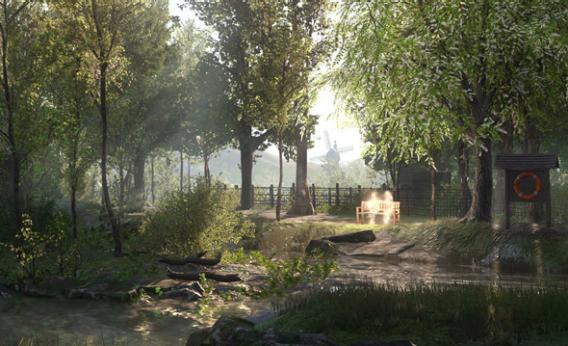Create a free profile to get unlimited access to exclusive videos, sweepstakes, and more!
Everybody’s Gone to the Rapture

What would you do if you happened upon a lovely and quaint English village, tucked away in a lush valley … and everyone there was gone? Vanished, suddenly, with meals half-cooked, birds lying in the streets where they’ve fallen, mysterious voices haunting the radio waves … and an observatory standing silent, still pointed up at the stars?
It’s not the end. This is where you begin with the game Everybody’s Gone to the Rapture, available now for PlayStation 4.
Why am I plugging it? Because the game has a serious science thread running through it, and the folks at PlayStation's Santa Monica Studios and The Chinese Room, who created the game, asked me to help out. With their guidance, I wrote some short essays—teasers, essentially—that they posted on their website. The topics include black holes, quasars, the Fermi paradox, SETI, and what it would be like to live at light0speed.
These were a lot of fun to write, and it was great to work with the clever people creating the game. I haven’t played it yet, but I’m looking forward to it. I’m not much of a first-person shooter gamer; I prefer the puzzles, the predicaments you must escape from (my wife and daughter are much more into gaming than I am, and I’m on call when they do if they get stuck in a particularly tough situation where they need a fresh set of eyes). Rapture looks perfect for me.
And the graphics are just stunning. I’m buried in deadlines right now (scripting the last few episodes of Crash Course Astronomy!), but when that’s all done, I’ll be treating myself to the luxury of sitting down and playing Rapture. I hope y’all like it too. You can buy it online.
And I want to thank the Science and Entertainment Exchange for hooking me up with this. SEE matches up scientists with creators (writers, directors, actors, game developers, and more) to help get better science into stories, and to help portray science and scientists better, too. You can imagine why I love them so much. Working with them is an honor.


























